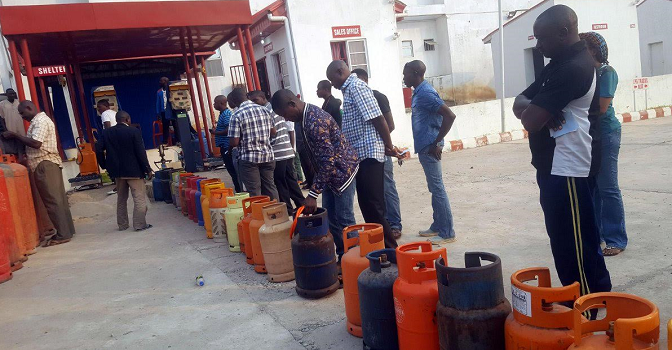Despite the Federal Government’s efforts to reduce the price of Liquified Petroleum Gas (LPG), commonly known as cooking gas, the cost has continued to rise, according to economist Dr. Ayo Anthony. In an interview in Abuja, Dr. Anthony acknowledged that the impact of government policies on the economy takes time to materialize.
The Federal Government had announced the removal of customs duty and Value-Added Tax (VAT) on the importation of LPG and associated equipment in November 2023. The move was aimed at alleviating the challenges posed by the constant price increments in the domestic market. However, the expected decrease in prices has not been immediately realized.
Dr. Anthony explained that the delay in the visible impact of government policies is due to what economists refer to as “inside lag” and “outside lag.” Inside lag represents the time it takes for the government to make decisions in response to a problem, while outside lag is the time it takes for those decisions to be implemented.
“In economics, we have what we call lag. Lag is the time it takes for government policy to materialize, and we have inside lag and outside lag,” Dr. Anthony said. “Decisions made by the government are not implemented immediately; bureaucratic processes will come in, that will cause another delay in implementation.”
Moreover, Dr. Anthony pointed out that the high cost of cooking gas could also be attributed to the issue of old gas stock. Cooking gas that had been purchased by marketers before the policy pronouncement to remove VAT may still be sold at the old price to cover the cost of importation.
As the government grapples with these challenges, it highlights the complexities and time required for policy changes to manifest in a tangible manner within the economy. Consumers and experts alike may need to exercise patience as the intended impacts of government interventions gradually take effect.























